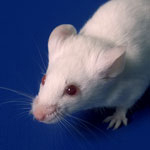
The team used corticosteroids to treat head injuries and respiratory illnesses in babies, antifibrinolytics to treat bleeding, thrombolysis and tirilazad for stroke and bisphosphonates for osteoporosis. But there was no consistent agreement between the animal and human studies, the researchers said.
Corticosteroids did not show any benefit for treating head injury in clinical trials but had done so in animal models, the researchers said.
Different results were also seen for tirilazad. Data from animal studies suggested it to be beneficial but the human trials showed possible harm.
However, bisphosphonates increased bone mineral density in both clinical trials and animal studies, while corticosteroids reduced neonatal respiratory distress syndrome in animal studies and in clinical trials, although the data were sparse.
The research, published in the British Medical Journal, suggests that the opportunities presented by animal research often go waste because the trials are “poorly conducted” and not independently reviewed.
